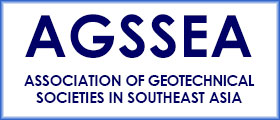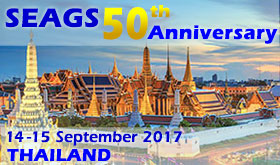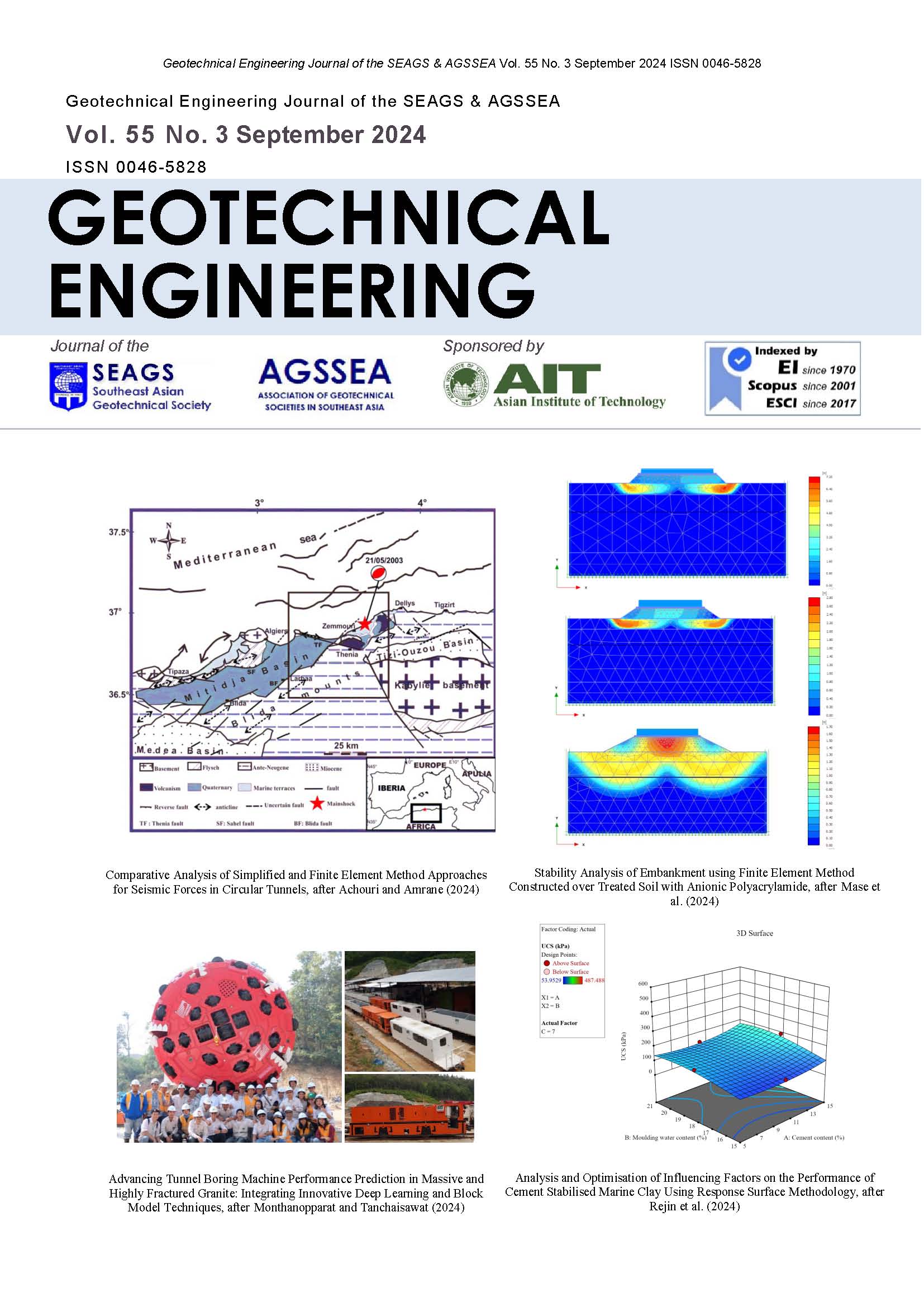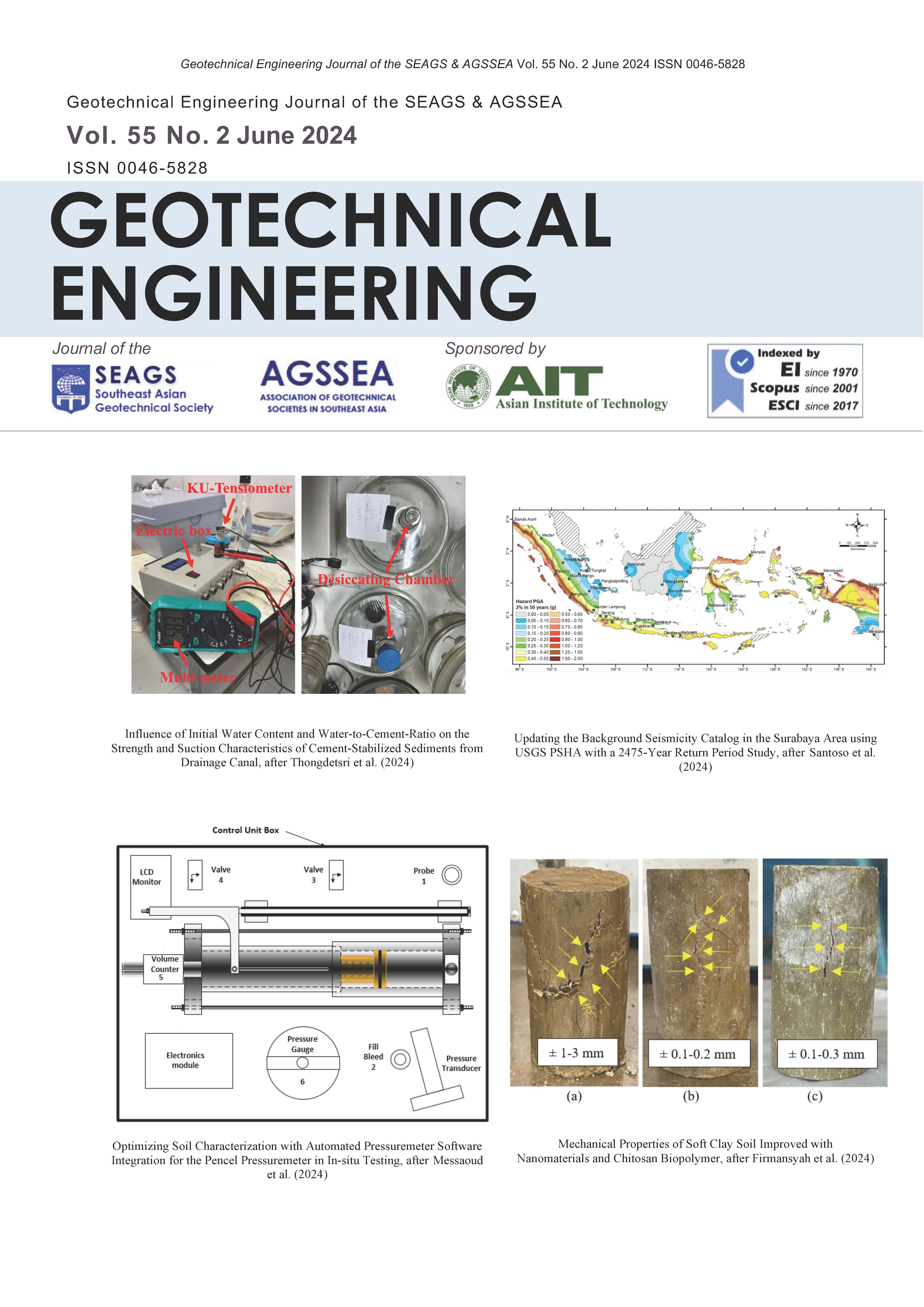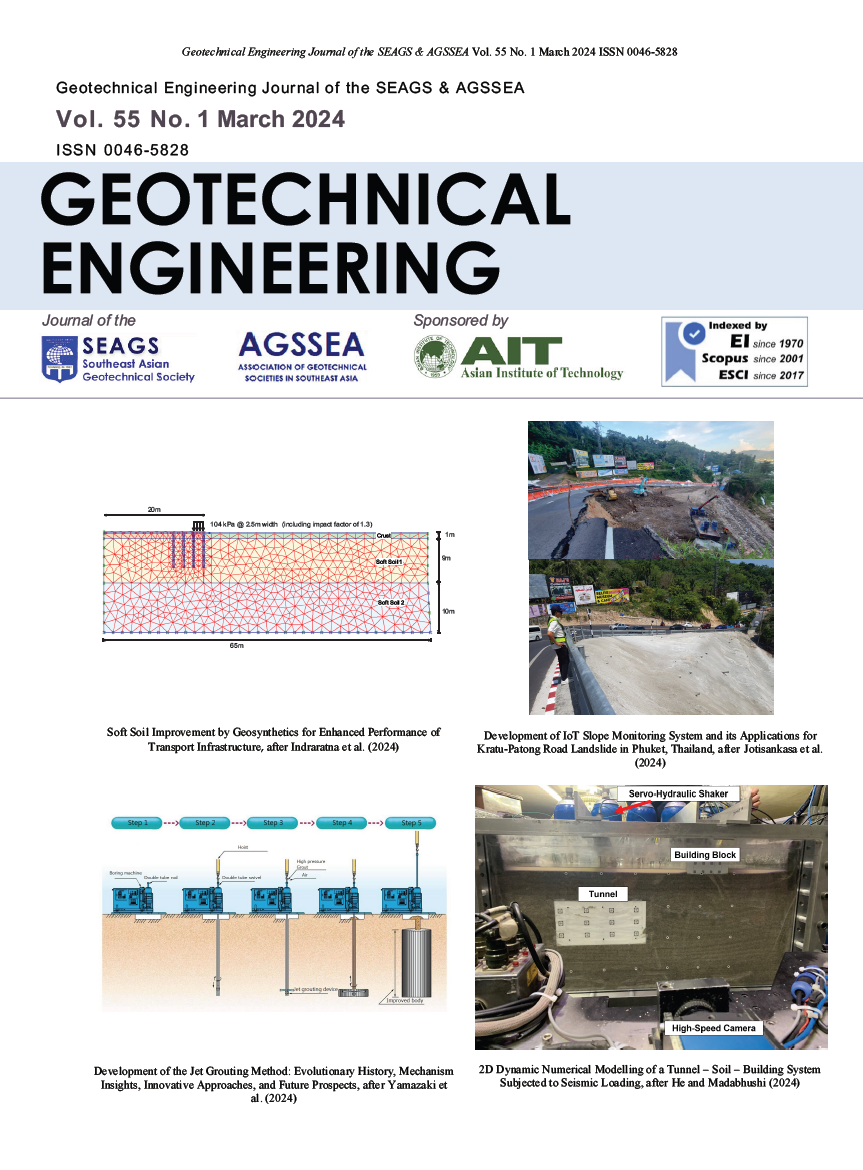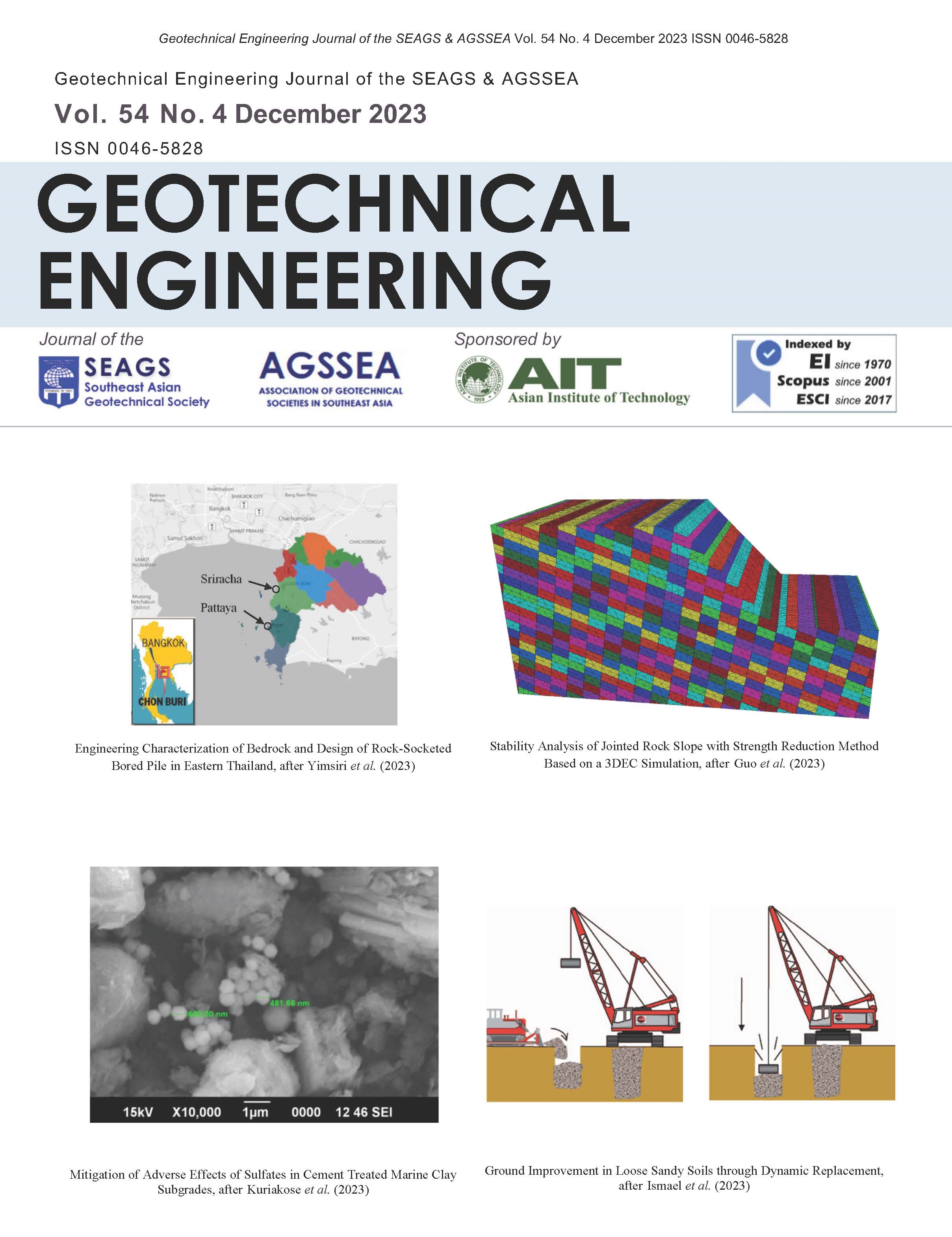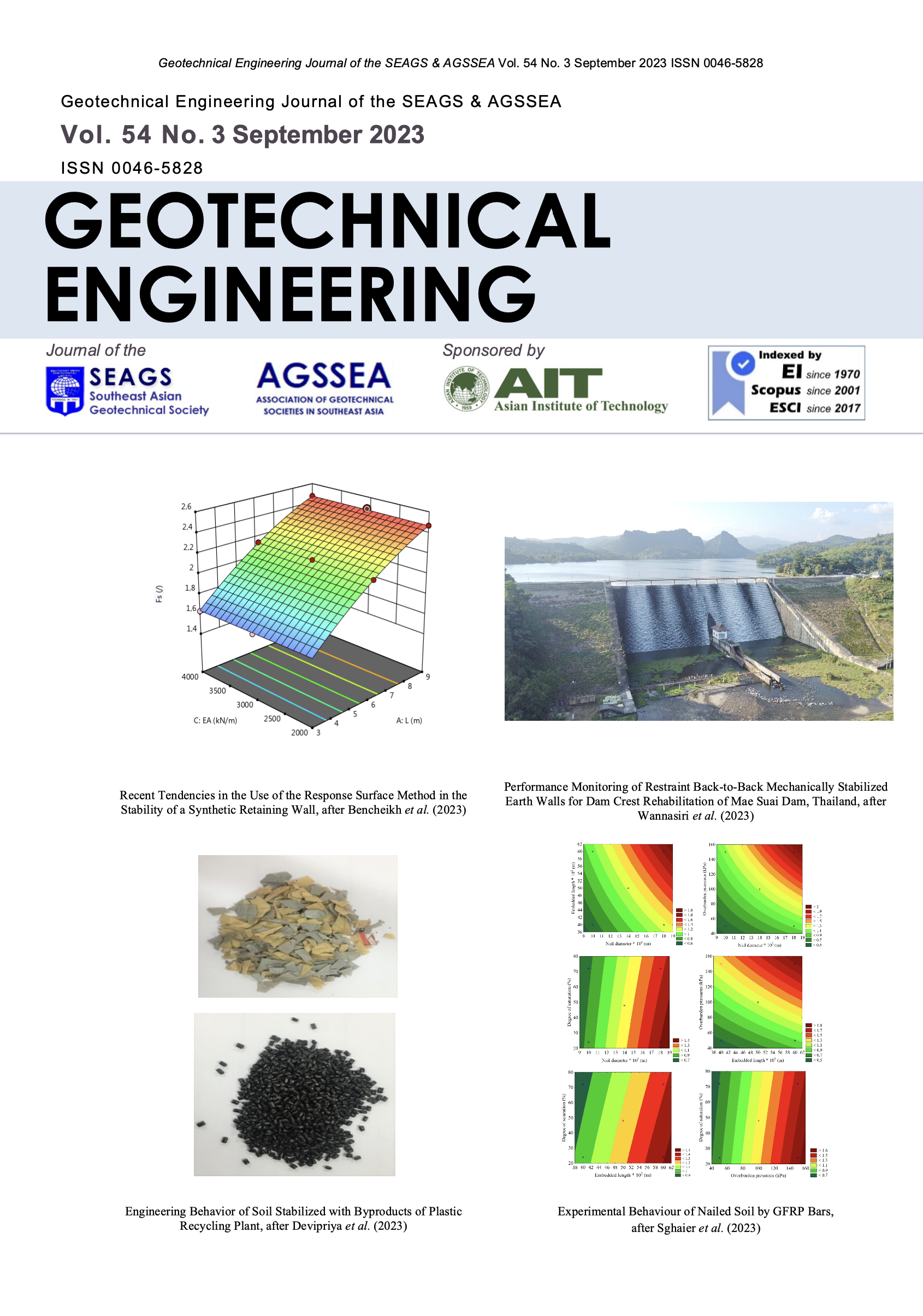Research Highlights
Centre for Soft Ground Engineering (CSGE),
National University of Singapore (NUS)
The research activities at the National University of Singapore (NUS) Centre for Soft Ground Engineering (CSGE) are grouped into two main areas, namely urban geotechnics and offshore geotechnics, both of which are reflected in the Singapore government’s Research Innovation and Enterprise Plan up to 2020 (RIE2020). The focus of urban geotechnics is captured under the “Urban Solutions and Sustainability (USS)” thrust of the RIE2020, which include creating and optimizing liveable space. Within CSGE, this is translated into several research thrusts including underground construction, ground improvement, land reclamation and coastal protection as well as risks and hazards arising from man-made and natural catastrophes.
A particularly important aspect of urban geotechnics in Singapore is large-scale underground development. In many large cities, usable space is a premium resource and underground development is often more a matter of necessity rather than choice. Singapore is an extreme example of this since it is completely surrounded by sea. The need for large-scale underground development is not new. This is captured in the Economics Strategies Committees’ Report (2010), which noted that we need to “…adopt a long term perspective and invest ahead to create new land and space.” While we can expand our land mass through reclamation as we have done for Marina Bay, there will be limits in the long-run. In the next 10 years, the Government should seek to catalyse the development of underground space as a means to intensify land use. We should put in place enablers for underground development such as by developing a subterranean land rights and valuation framework, and by establishing a national geology office. We must also develop an underground masterplan to ensure that underground and aboveground spaces are synergised, and invest in the creation of basement spaces in conjunction with new underground infrastructural projects (e.g. rail), so as to add to our “land bank”.
This forms the backdrop of a substantial and long-term “space creation” programme which is driving a significant part of the geotechnical research strands in CSGE.
The impetus for the need to create space on geotechnical research at CSGE is reflected in the following strands of research work:
(a) Deep excavation and underground construction: Fook-Hou Lee, Chun-Fai Leung, Yean-Khow Chow, Kwet-Yew Yong and Harry Siew-Ann Tan.
(b) Land reclamation and coastal development: Darren Siau-Chen Chian and Soon-Hoe Chew.
(c) Ground improvement: Fook-Hou Lee, Darren Siau-Chen Chian, Kwet-Yew Yong and Soon-Hoe Chew.
(d) Site investigation and ground characterization: Kok-Kwang Phoon and Taeseo Ku.
(e) Impact of earthquakes and ground vibration on subterranean structures: Siang-Huat Goh and Darren Siau-Chen Chian.
The need for offshore geotechnics, as a part of marine and offshore engineering, is also reflected in one of the RIE2020’s Strategic Technology Domains “Advanced Manufacturing and Engineering”, under which “marine and offshore” is one of eight key industry pillars. The Singapore Maritime Institute (SMI) currently co-ordinates all marine and offshore research activities in Singapore. Within NUS, research activities in this sector are co-ordinated by the Maritime Institute@NUS (MI@NUS), the Director for which is Professor Yean-Khow Chow. The offshore geotechnical research work at NUS covers the following topics:
(i) Spudcan foundations: Yean-Khow Chow, Chun-Fai Leung and Fook-Hou Lee.
(ii) Plate and dynamically installed anchors: Yean-Khow Chow, Chun-Fai Leung and Fook-Hou Lee.
(iii) Deepwater pipelines: Fook-Hou Lee.
More details on the research works can be found in the write-ups of the respective researchers.
 Download PDF File: Research High lights: Centre for Soft Ground Engineering (CSGE), National University of Singapore (NUS)
Download PDF File: Research High lights: Centre for Soft Ground Engineering (CSGE), National University of Singapore (NUS)

Field test on an equipment for deep mixing around corners and obstacles

Completion of the undersea containment bund with geotextile tubes






